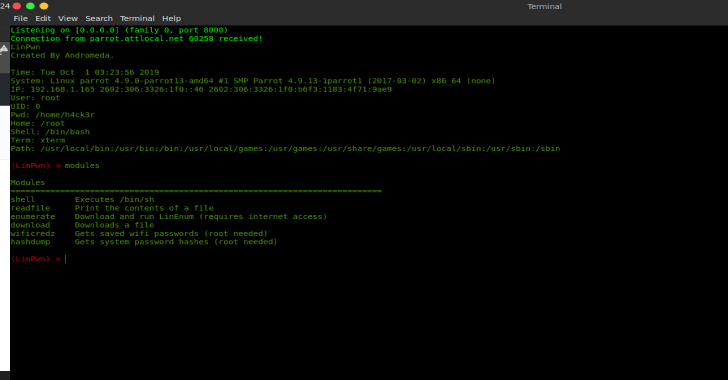Routersploit is an open-source exploitation Framework to perform various penetration testing operations with embedded devices.
The Routersploit contains various modules that perform penetration testing operations
exploits – modules that take advantage of identified vulnerabilities
creds – modules designed to test credentials against network services
scanners – modules that check if a target is vulnerable to any exploit
payloads – modules that are responsible for generating payloads for various architectures and injection points
generic – modules that perform generic attacks
Installation – Routersploit
To install Routersploit it requires the following modules to be present in the system
future
requests
paramiko
pysnmp
pycrypto
Optional
bluepy – Bluetooth low energy
Also Read Blind-Bash: Project To Obfuscate Your Bash Code
Installation on Kali Linux
apt-get install python3-pip git clone https://www.github.com/threat9/routersploit cd routersploit python3 -m pip install -r requirements.txt python3 rsf.py
Bluetooth Low Energy support:
apt-get install libglib2.0-dev python3 -m pip install bluepy python3 rsf.py
Installation on Ubuntu 18.04 & 17.10
sudo add-apt-repository universe sudo apt-get install git python3-pip git clone https://www.github.com/threat9/routersploit cd routersploit python3 -m pip install -r requirements.txt python3 rsf.py
Bluetooth Low Energy support:
apt-get install libglib2.0-dev python3 -m pip install bluepy python3 rsf.py
Installation on OSX
git clone https://www.github.com/threat9/routersploit cd routersploit sudo python3 -m pip install -r requirements.txt python3 rsf.py
Running on Docker
git clone https://www.github.com/threat9/routersploit cd routersploit docker build -t routersploit docker run -it --rm routersploit
To Update Routersploit
cd routersploit git pull















